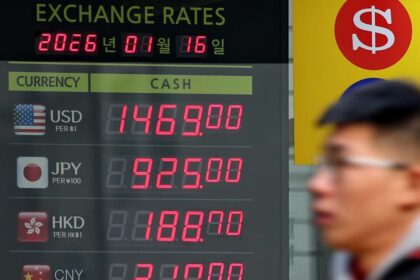Squid Game Season 3: The Ending That Almost Was
Netflix’s Squid Game has become a global phenomenon, captivating audiences with its brutal depiction of economic desperation and the lengths to which people will go for survival. With the release of Season 3, the series concluded its saga, but not without sparking intense debate among fans and critics alike. The finale, which saw protagonist Gi-hun sacrifice himself to save a newborn baby, was both shocking and divisive. Yet, as revealed by creator and director Hwang Dong-hyuk, this was not the original ending he had envisioned for the series. The journey from a hopeful conclusion to a tragic sacrifice reflects not only the evolution of the story but also the director’s response to the changing world around him.
- Squid Game Season 3: The Ending That Almost Was
- What Was the Original Plan for Squid Game’s Ending?
- Why Did Hwang Dong-hyuk Change the Ending?
- How Did the Alternate Ending Differ?
- Fan and Critical Reactions: A Divided Audience
- The Creative Process: Choosing the Right Games and Characters
- The Symbolism of Sacrifice and Hope
- The Impact on Other Characters: The Front Man and Beyond
- The Final Scene: Cate Blanchett’s Cameo and the Future of the Franchise
- Broader Implications: Squid Game as Social Commentary
- In Summary
What Was the Original Plan for Squid Game’s Ending?
When Hwang Dong-hyuk first began conceptualizing the continuation of Squid Game after its breakout first season, he imagined a very different fate for Gi-hun. In early drafts, Gi-hun was to survive the deadly games once again and finally reunite with his daughter in the United States—a much more optimistic and redemptive conclusion. Hwang shared in multiple interviews that he initially saw Gi-hun returning to the game, possibly to destroy it or help others escape, before leaving for America to see his daughter. This would have provided a sense of closure and hope, a reward for Gi-hun’s perseverance and moral struggle.
However, as Hwang delved deeper into the writing process, he began to question what story he truly wanted to tell. The world, he observed, had changed significantly since the first season. Economic inequality had worsened, wars continued to escalate, and hope for the future seemed to be fading for many. Hwang explained:
“Compared to when I created Season 1, the world has gotten even worse. Economic inequality has deepened, ordinary people’s lives have become more difficult and wars continue to escalate with no sign of ending. Every year, things seem to grow more serious by the day. But people don’t seem to have either the will or the ability to fix it. If things continue this way, the future looks truly bleak. That’s a reality I felt needed to be addressed.”
It was this grim outlook that led Hwang to reconsider the ending. He decided that Gi-hun’s journey should end not with personal happiness, but with a sacrifice that would serve as a message about the need for older generations to make way for the future.
Why Did Hwang Dong-hyuk Change the Ending?
The shift from a hopeful to a tragic ending was not merely a narrative twist, but a deliberate thematic choice. Hwang wanted to reflect the harsh realities of contemporary society and the sacrifices required to create a better world for future generations. The baby, born during the games and ultimately saved by Gi-hun’s selfless act, became a symbol of hope and the future.
Hwang elaborated on this symbolism in interviews:
“By having Gi-hun, a member of the older generation, sacrifice himself to save that child, I wanted to convey the idea that this is how we must look at giving the future generation a better world. I felt that was the most suitable ending for this show.”
This decision also aligned with the show’s ongoing exploration of human nature, morality, and the consequences of systemic inequality. Gi-hun’s final act was not just about saving a life, but about rejecting the rules of a system designed to pit people against each other for the amusement of the powerful.
How Did the Alternate Ending Differ?
In the original plan, Gi-hun would have survived the games, possibly alongside other major characters, and left the island with the baby. There was even a version where the police, led by Jun-ho, would arrive just in time to help end the game, allowing for a collective escape rather than a solitary sacrifice. This would have provided a more conventional sense of justice and triumph over adversity.
However, as Hwang developed the characters and their arcs, he realized that a darker, more ambiguous ending would be more impactful. The final version saw Gi-hun faced with an impossible choice: kill the baby to survive, or sacrifice himself so that the child could live. In a moment of profound humanity, Gi-hun chose the latter, defying the expectations of both the game’s organizers and the audience.
This ending not only subverted the typical hero’s journey but also forced viewers to confront uncomfortable questions about the nature of sacrifice, the value of individual lives, and the responsibilities of one generation to the next.
Fan and Critical Reactions: A Divided Audience
The response to the Season 3 finale was immediate and intense. Some viewers praised the show’s willingness to embrace a bleak but meaningful conclusion, while others criticized it for abandoning the hope and ingenuity that defined the first season. The decision to have Gi-hun die, rather than escape or dismantle the game, was seen by some as a betrayal of the character’s arc, while others viewed it as a powerful statement about the cost of real change.
Critics noted that the ending was both tragic and uplifting, with Gi-hun’s sacrifice serving as a final act of defiance against the system. The baby’s survival, and the implication that she would inherit the prize money, offered a glimmer of hope amid the darkness. As one reviewer put it, “Squid Game doesn’t have a happy ending because, as it exists now, capitalism doesn’t have a happy ending. Still, Hwang leaves us with hope.”
The Creative Process: Choosing the Right Games and Characters
One of the hallmarks of Squid Game has been its inventive use of traditional Korean children’s games, repurposed into deadly challenges. For Season 3, Hwang faced the challenge of selecting games that would not only provide suspense and spectacle but also allow for meaningful character development.
Hwang revealed that not every game considered made it into the final script. Some, like “Why did you come to my house?” which relies heavily on rock-paper-scissors, were rejected for lacking narrative tension. Others, such as “Open the Dongdaemun gate,” were deemed too random and lacking in player agency. The games that did make the cut, like the reimagined game of tag, were chosen for their potential to heighten emotional stakes and drive the story forward.
Hwang explained:
“It may seem like any game could work, but when you actually try to adapt it, it becomes challenging. You have to figure out how players will be eliminated, and there needs to be enough space in the game to allow character dynamics and story to unfold. The rules also must be clear so that the line between failure and success is well defined.”
The fourth game in Season 3, much like the marble game in Season 1, was designed to carry the most emotional weight, forcing characters to confront life-or-death decisions that revealed their true selves.
The Symbolism of Sacrifice and Hope
Throughout Squid Game, children and the idea of the next generation have served as powerful symbols. In Season 1, the character Sae-byeok (whose name means “dawn”) represented hope and the dream of a better future. In Season 3, the introduction of No-eul (meaning “dusk”) provided a counterpoint—a character who had lost hope but found redemption through selfless acts.
No-eul’s journey, alongside Gi-hun’s sacrifice, reinforced the show’s central message: that true change requires individuals to put aside their own interests for the sake of others. The baby’s survival was not just a plot device, but a metaphor for the possibility of renewal and the importance of protecting the vulnerable.
Hwang articulated this theme:
“The symbolism behind children [in the show], it’s not just about the biological child of one character, but I wanted that to symbolize any kind of hope we may have for the future as well as our will to live.”
The Impact on Other Characters: The Front Man and Beyond
Gi-hun’s final act had a profound effect on other characters, particularly the enigmatic Front Man, In-ho. Throughout the series, In-ho represented a cynical worldview, believing that people are inherently selfish and that survival requires ruthless choices. Gi-hun’s refusal to kill the baby, even at the cost of his own life, challenged this philosophy and forced In-ho to confront his own actions and beliefs.
Hwang noted that Gi-hun’s sacrifice “touched something in In-ho’s heart, maybe a very small sliver of hope that he had hidden deep down.” This moment of vulnerability suggested that even those who seem irredeemable can be changed by acts of compassion and courage.
The Final Scene: Cate Blanchett’s Cameo and the Future of the Franchise
The finale of Season 3 included a surprise cameo by Oscar-winning actress Cate Blanchett, who appeared as a recruiter conducting a game of ddakji with new candidates in the United States. This brief but impactful scene sparked speculation about a possible American spinoff or sequel.
Hwang clarified that Blanchett’s appearance was not intended to set up a direct sequel, but rather to suggest that the games—and the issues they represent—are not confined to Korea. The global reach of the Squid Game universe reflects the universality of its themes: inequality, desperation, and the search for hope.
As for the future of the franchise, Hwang has expressed interest in exploring spinoffs or side stories, particularly those focusing on the masked guards or recruiters. He hinted at the possibility of delving into the private lives and relationships of these enigmatic figures, offering new perspectives on the world he has created.
Broader Implications: Squid Game as Social Commentary
From its inception, Squid Game has been more than just a survival thriller. It is a biting critique of modern society, exposing the consequences of unchecked capitalism, social stratification, and the erosion of empathy. The evolution of the show’s ending reflects Hwang’s desire to engage with these issues in a meaningful way.
By choosing a darker, more challenging conclusion, Hwang invites viewers to reflect on their own values and the kind of world they want to create. The show’s success—both in terms of viewership and cultural impact—demonstrates the power of storytelling to provoke thought and inspire change.
In Summary
- Squid Game Season 3’s original ending was a hopeful one, with Gi-hun surviving and reuniting with his daughter in the US.
- Director Hwang Dong-hyuk changed the ending to a tragic sacrifice, reflecting the worsening state of the world and the need for generational change.
- The final ending sees Gi-hun sacrificing himself to save a newborn baby, symbolizing hope for the future.
- The creative process involved careful selection of games and character arcs to maximize emotional impact and thematic resonance.
- Fan and critical reactions were divided, with some praising the boldness of the ending and others longing for a more uplifting conclusion.
- The finale included a cameo by Cate Blanchett, hinting at the global scope of the Squid Game universe and the possibility of future spinoffs.
- Ultimately, Squid Game remains a powerful social commentary on inequality, sacrifice, and the enduring human capacity for hope.












